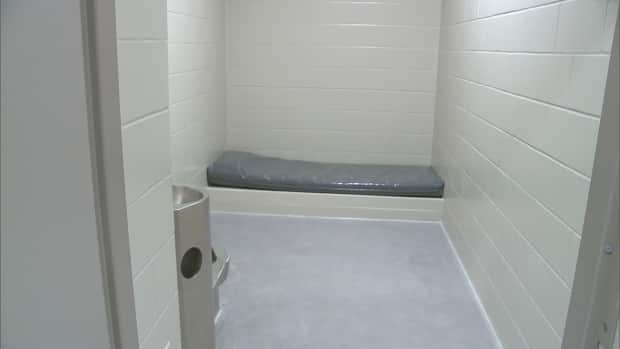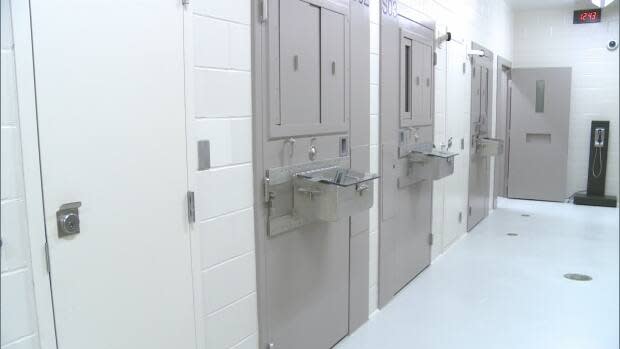Hundreds of former N.S. inmates could join class suit over solitary confinement

A class-action lawsuit targeting the use of prolonged solitary confinement in Nova Scotia's jails has taken a major step forward.
Justice John Bodurtha of the Nova Scotia Supreme Court recently certified the class action against the attorney general of Nova Scotia in late March, meaning the lawsuit can move forward with multiple class members as one group.
The lawsuit alleges solitary confinement for a consecutive period of 15 days or more constitutes cruel and unusual punishment, and violates an inmate's Charter of Rights and Freedoms. Prolonged solitary confinement exceeding 15 days also fits the U.N.'s definition of torture.
The suit alleges the province has been negligent for not ending this practice sooner.
"You want offenders to be in a better state upon reintegration into mainstream society than they were, you know, going into prison," Mike Dull, the Halifax lawyer for the class action, said Monday.
"There is really good evidence that says that subjecting inmates to prolonged solitary confinement actually leaves them worse off, and therefore society as a whole worse off, because they're more likely to reoffend."

None of the allegations contained in the suit have been tested in court.
Under segregation, offenders may be held in designated cells away from other inmates, or confined to their cell in their living unit.
Dull said he believes the lawsuit has merit, given the increasing number of courts around Canada that have ruled against segregating inmates for more than two weeks at a time.
Most recently, Ontario's Court of Appeal decided that a $30-million class-action award against Ontario for its mistreatment of inmates in solitary confinement will stand.
When asked about potential damages, Dull said they'll take guidance from what's already been awarded in Ontario.
Three years ago, the auditor general's office in Nova Scotia found the Justice Department had not been following its own rules on "close confinement"— the province's term for segregation.
In a May 2018 report, Auditor General Michael Pickup's office discovered the offenders in nine out of 47 cases were placed in close confinement for "administrative reasons" longer than allowed, without the approval required under department policy.
Someone could be kept in solitary confinement for disciplinary, medical or administrative reasons. Those could be for the offender's own protection, the safety of staff, or the facility itself.
But Dull said the reasons why an institution might subject an inmate to weeks of segregation is irrelevant, when the harms coming from the practice add up to a breach of the charter.
The class action was filed in the fall of 2018, soon after the AG report came out.

Robert Bailey is one of the two representative plaintiffs in the lawsuit, alongside Caitlin Hill. Bailey told CBC News about conditions like lights constantly being on in his cell, floor mats in place of beds, and having to wear robes instead of clothing.
"You never see the outside, you never go to yard, you never get a breath of fresh air," Bailey told CBC Radio's Information Morning. "It changes you."
The AG report noted that effective May 2017, the department changed its policy so an offender can only be placed in administrative close confinement for a maximum of 10 days. If more time is needed, senior management can approve additional periods of up to 30 days.
But Dull said his colleagues on the lawsuit at Valent Legal and McKiggan Hebert have been approached by hundreds of possible class members in the past couple of years, and they say differently.
"Despite the decisions from across Canada saying you can't do this, we know or I have heard anecdotally from inmates that they continue to do it," Dull said.
The lawsuit does not argue that inmates should never be separated from the general population, since there are situations where that's needed for safety reasons, said Dull.
But he added the segregation should not last more than 15 days, and the facilities must have a good understanding of which inmates have pre-existing mental health conditions like depression or PTSD. Those people should be given extra care and not be subjected to even two days in a row of segregation, Dull said, because the risks are too great.
Although changing correctional facilities and policies to rely less on solitary confinement will cost money, likely including a staffing increase for new ways to keep inmates safe, Dull said the government will save money in the long run.
The auditor general's report noted that in 2016-17, there were about 500 offenders across the province's four facilities, with an average daily cost of $250 per offender.
With an investment to ensure that inmates are psychologically healthy when they leave, Dull said there will hopefully be fewer people who reoffend and cost the justice system more money down the road.
Relevant class members are automatically included in the class-action lawsuit unless they opt out of the process by June 30.
Dull said they are now starting to build their case toward a possible trial within the next two years, but the door is open for the province to sit down to talk about a resolution.
A spokesperson for the Justice Department said in an email Monday that they could not comment on the lawsuit as it is a matter before the courts.
MORE TOP STORIES

 Yahoo Movies
Yahoo Movies 